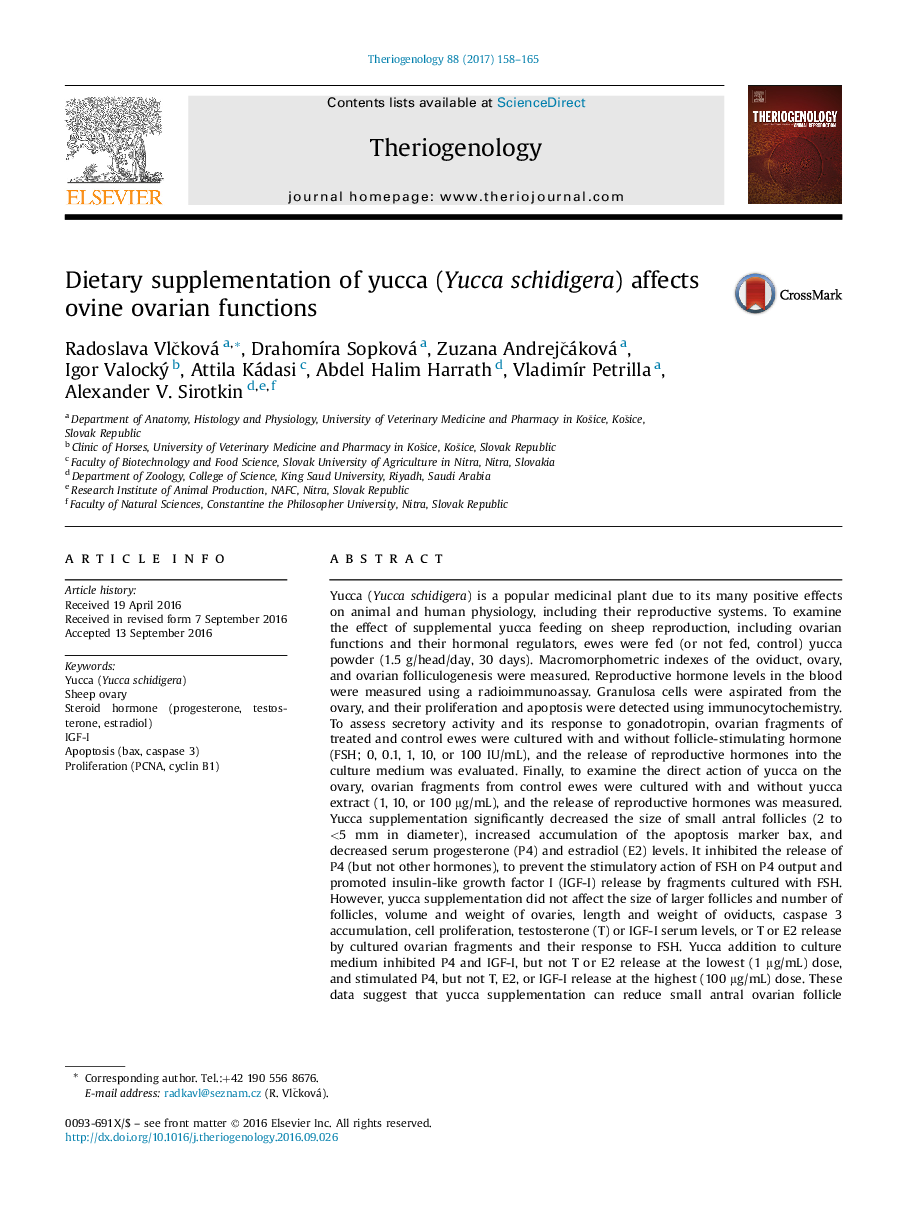| Article ID | Journal | Published Year | Pages | File Type |
|---|---|---|---|---|
| 5523265 | Theriogenology | 2017 | 8 Pages |
Yucca (Yucca schidigera) is a popular medicinal plant due to its many positive effects on animal and human physiology, including their reproductive systems. To examine the effect of supplemental yucca feeding on sheep reproduction, including ovarian functions and their hormonal regulators, ewes were fed (or not fed, control) yucca powder (1.5 g/head/day, 30 days). Macromorphometric indexes of the oviduct, ovary, and ovarian folliculogenesis were measured. Reproductive hormone levels in the blood were measured using a radioimmunoassay. Granulosa cells were aspirated from the ovary, and their proliferation and apoptosis were detected using immunocytochemistry. To assess secretory activity and its response to gonadotropin, ovarian fragments of treated and control ewes were cultured with and without follicle-stimulating hormone (FSH; 0, 0.1, 1, 10, or 100 IU/mL), and the release of reproductive hormones into the culture medium was evaluated. Finally, to examine the direct action of yucca on the ovary, ovarian fragments from control ewes were cultured with and without yucca extract (1, 10, or 100 μg/mL), and the release of reproductive hormones was measured. Yucca supplementation significantly decreased the size of small antral follicles (2 to <5 mm in diameter), increased accumulation of the apoptosis marker bax, and decreased serum progesterone (P4) and estradiol (E2) levels. It inhibited the release of P4 (but not other hormones), to prevent the stimulatory action of FSH on P4 output and promoted insulin-like growth factor I (IGF-I) release by fragments cultured with FSH. However, yucca supplementation did not affect the size of larger follicles and number of follicles, volume and weight of ovaries, length and weight of oviducts, caspase 3 accumulation, cell proliferation, testosterone (T) or IGF-I serum levels, or T or E2 release by cultured ovarian fragments and their response to FSH. Yucca addition to culture medium inhibited P4 and IGF-I, but not T or E2 release at the lowest (1 μg/mL) dose, and stimulated P4, but not T, E2, or IGF-I release at the highest (100 μg/mL) dose. These data suggest that yucca supplementation can reduce small antral ovarian follicle development possibly via the stimulation of apoptosis of their granulosa cells, suppression of ovarian P4 and E2 release, and alteration of ovarian IGF-I output and ovarian response to gonadotropin. Thus, yucca can directly affect P4 and IGF-I release by ovine ovarian cells.
